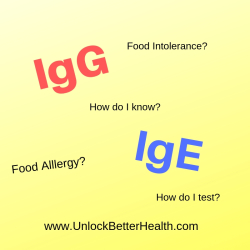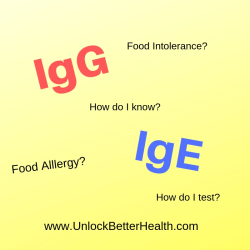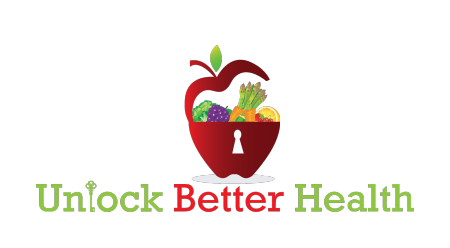
Food Allergy, Intolerance or Sensitivity...
How can you tell them apart? How do I test?
Gluten, Dairy, Soy, Corn, Eggs, Peanuts, Tree Nuts, Fish/Shellfish, Nitrates, & Sulfites
These ten items are the most common food allergies in the US right now. But, what is the difference and how can you tell if you have a true allergy or a sensitivity to a particular food?
An allergy is defined as a normal response to an unfamiliar protein sequence. (like undigested or partially digested food proteins) Some allergies, like sulfur, salicylate, and gluten can be inherited, but most are the result of digestive problems and dietary stressors.

A person can only be truly allergic to some type of protein-based item.
Food sensitivities, however, may result in "allergic-type" reactions to other foods that are not protein-based. So, how are they the same and how are they different? Both reactions are mediated by antibodies being produced against an antigen in the food The difference is the type of antibodies that are produced. True food allergies are mediated by IgE antibodies. These trigger the release of histamine from mast cells and basophils, thus triggering symptoms such as hives, swelling of facial tissues, red skin, sneezing, coughing, elevated heart rate, shortness of breath and so on. The reaction is very swift and anaphylaxis can occur within minutes from consumption or contact. The memory for creating the IgE antibodies can be lifelong - which is why you would need to avoid those foods your entire life. Diagnosing such an allergy can be done via skin prick testing on the arms or back with 10-30 items (mostly environmental triggers), but it has a high false positive rate of 50-70% - meaning you aren't really allergic after all.
IgE blood tests can be done to measure antibodies using Elisa technology, but again false positives can run between 40-60%! And remember, this is only testing for true IgE allergies.
Food sensitivities don't hold the same memory. It's also important to note that allergies and sensitivities can change over time.
A food intolerance will look very similar to an allergy, but the response is typically delayed - sometimes as long as a week. Symptoms can range from post nasal drip, sneezing, joint pain, skin rashes, dry spots on the skin, pink bumps, fatigue, mood changes, restlessness, insomnia and a full range of GI symptoms (reflux, burping, gas, bloating, diarrhea and abdominal pain). These are usually measured via blood test looking at IgG antibodies. With any testing, you have to have been exposed to the allergen relatively recently to have a measurable amount of antibodies (like 3-4 weeks) or the false negative rate is higher. Alternatively, if you know you have a reaction to a particular food, you can try an elimination diet for 30 days and then slowly go through the reintroduction phase. (I can help with this process if you need guidance.)
Food sensitivities are a bit different. It is a non-antibody mediated reaction to a food. The class of foods known as FODMAPS is a great example. You may experience bloating and tooting, but you don't have an intolerance - just sensitive to those foods. There are no current testing methods for this, but an elimination diet can be quite useful here.
What tests do I need?
In order to test for a food allergy, a blood test (the Elisa) is currently the gold standard in most doctor's offices. This is measuring IgE antibodies for a true food allergy.
To test for food intolerances, there are a number of tests out there. I like and have used the KBMO FIT test. As a Nutritional Therapist, I can now order these tests for my clients. The FIT test looks at 132 different foods and additives. KBMO also has a test for Zonulin which can detect "leaky gut." This is very useful in helping my clients restore health to their gut and hopefully remove some of these intolerances.
If you are interested in learning what food intolerances you have or if leaky gut is suspected, let's test. Then, I will guide you through some dietary protocols and helpful tips on restoring your gut health.

